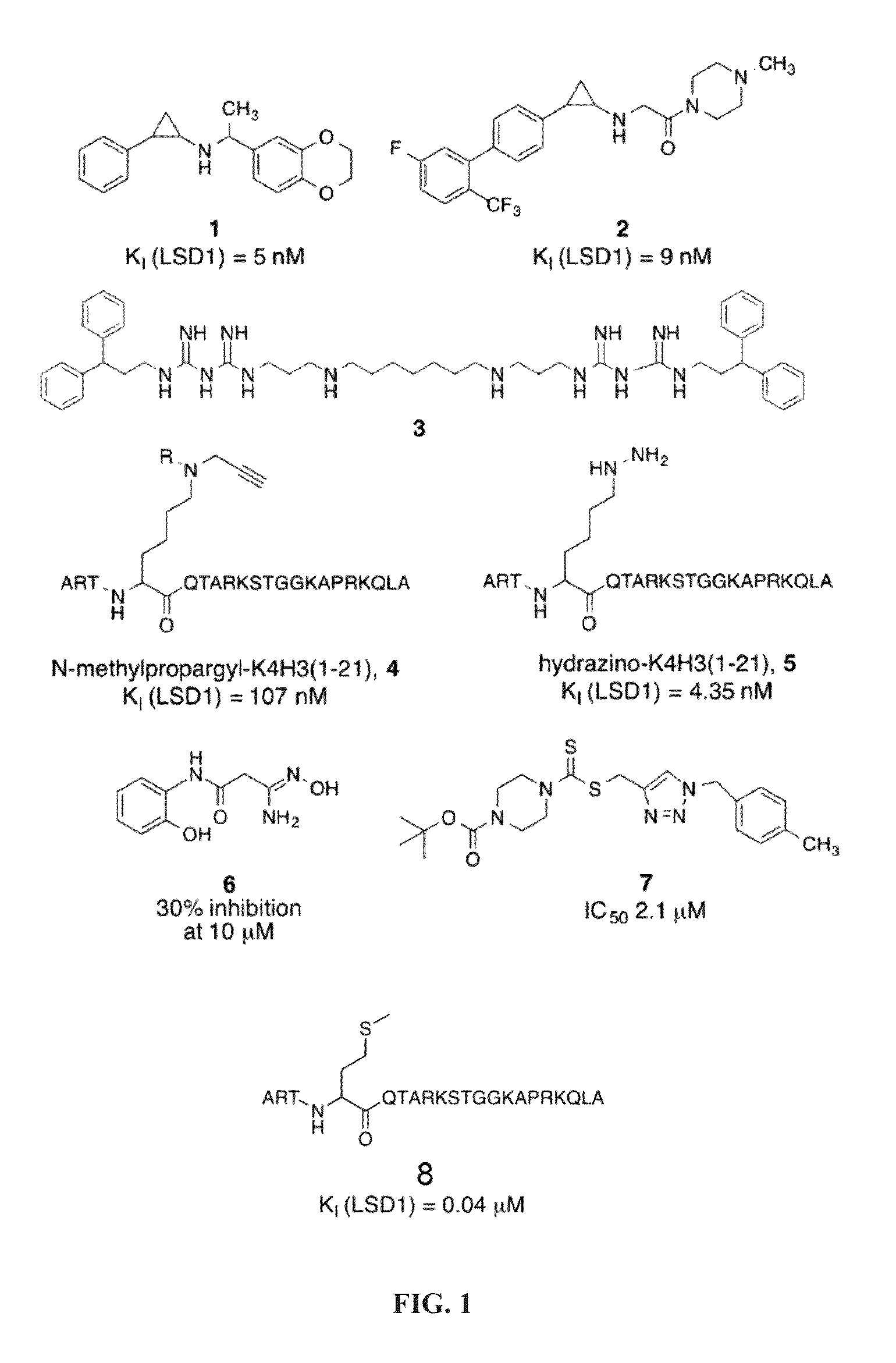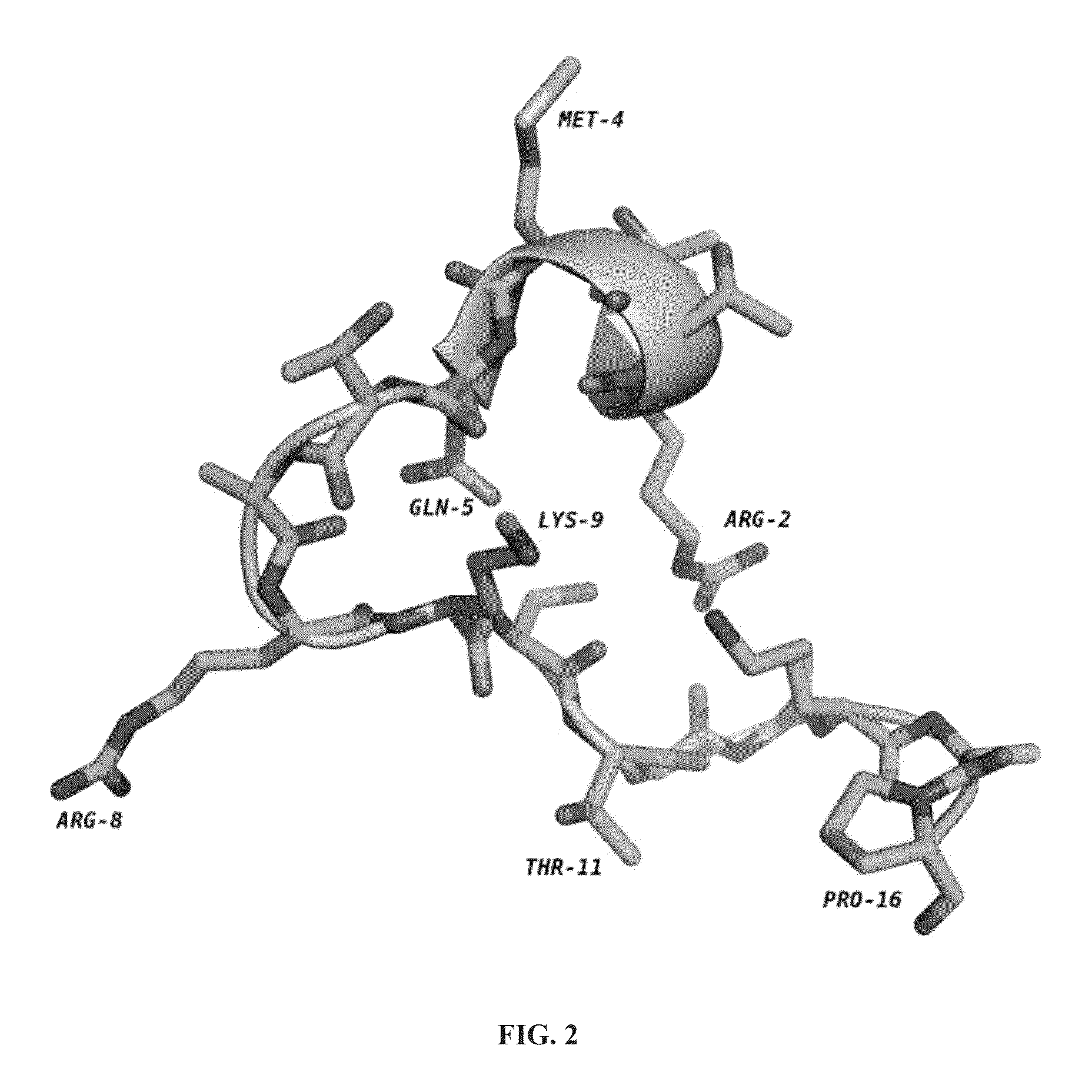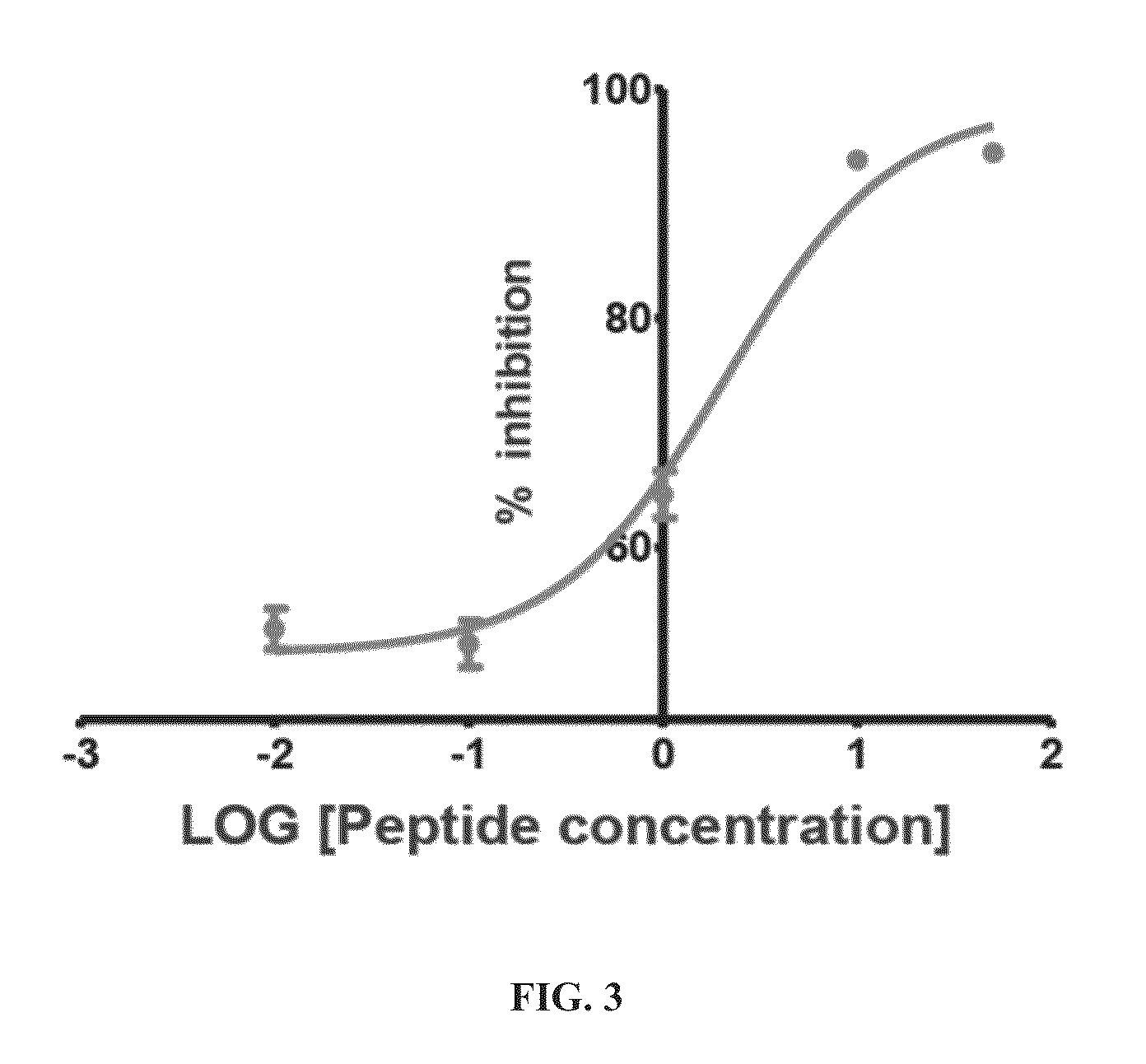Cyclic peptide inhibitors of lysine-specific demethylase 1
a lysine-specific demethylase and peptide technology, applied in the field of medicine, can solve the problem of little potential for use as a drug
- Summary
- Abstract
- Description
- Claims
- Application Information
AI Technical Summary
Benefits of technology
Problems solved by technology
Method used
Image
Examples
example 1
Cyclic Peptide Inhibitors of LSD1
[0141]Peptides having less than 16 amino acid residues bind poorly to LSD1, and optimal binding appears to require 21 amino acid residues (Culhane et al., 2010). Thus, the inventors used ligand-based techniques to design and synthesize a series of linear and cyclic peptides based on the 21-amino acid histone 3 lysine 4 binding region. Because it is a potent peptide-based inhibitor of LSD1, the X-ray crystallographic structure of LSD1-CoREST bound to 8 was used as the basis for the design of these cyclic peptide inhibitors. The X-ray crystallographic conformation of the bound [Met]4 H3 (1-21)-OH peptide revealed that the side chains of certain amino acid residues are in proximity to each other in three dimensions. For example Arg2 and Gln5, Arg2 and Ser10, Arg2 and Gly12, Arg2 and Lys14, and Gln5 and Ser10 were identified as pairs of amino acid residues situated in close proximity (FIG. 2) during LSD1 binding to 8.
[0142]To produce peptides that were c...
example 2
Optimization of Cyclic Peptide-Based Inhibitors of LSD1
[0151]An alanine scanning approach will be used to determine which amino acid residues in the cyclic portion of the lead peptide are critical for binding to the LSD1 active site. Then, peptidomimetic and peptoid residues will be systematically substituted into the cyclic structure of our lead peptide to enhance enzyme inhibitory activity, improve cell penetration and increase stability in plasma. Analogues of the lead peptide that feature lysine residues at position 4 that are substituted with warhead groups will be produced. Cyclic peptide inhibitors selected by predetermined criteria will be lipidated to determine enhanced delivery and / or oral activity and ultimately create the potential for selective targeting of tumor cells.
[0152]Ligand-based techniques will be used as previously described (Kumarasinghe and Woster, 2014) to design a series of cyclic peptides based on the 21-amino acid H3K4 substrate, using the X-ray structur...
example 3
Cyclic Peptide LSD1 Inhibitors Affect Tumor Growth in viva
[0165]The efficacy of cyclic peptides satisfying predetermined criteria will be evaluated in a murine xenograft model of tumor growth. Specifically, SCID mice bearing tumors from the Calu-6 human lung adenocarcinoma line and the MDA-MB-231 hormone receptor negative breast tumor line will be treated.
[0166]LSD1 inhibitors with the highest potency will be evaluated in vivo for their toxicity and biodistribution, and to determine their efficacy in murine xenograft models of human cancer. For these xenografts, the Calu-6 human lung adenocarcinoma line and the MDA-MB-231 human breast tumor will be used, and in vivo efficacy will be determined with the peptide alone and in combination with 5-AC.
[0167]Criteria ,Ibr selection of compounds for testing. In vivo testing will be conducted with the newly-synthesized LSD1 inhibitors. The key criteria for selection of compounds for in vivo testing will be their selectivity and potency for in...
PUM
| Property | Measurement | Unit |
|---|---|---|
| molecular weights | aaaaa | aaaaa |
| molecular weights | aaaaa | aaaaa |
| pH | aaaaa | aaaaa |
Abstract
Description
Claims
Application Information
 Login to View More
Login to View More - R&D
- Intellectual Property
- Life Sciences
- Materials
- Tech Scout
- Unparalleled Data Quality
- Higher Quality Content
- 60% Fewer Hallucinations
Browse by: Latest US Patents, China's latest patents, Technical Efficacy Thesaurus, Application Domain, Technology Topic, Popular Technical Reports.
© 2025 PatSnap. All rights reserved.Legal|Privacy policy|Modern Slavery Act Transparency Statement|Sitemap|About US| Contact US: help@patsnap.com



